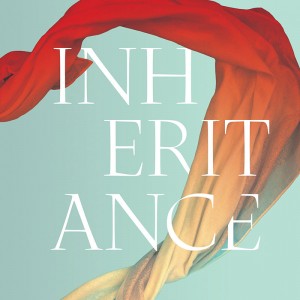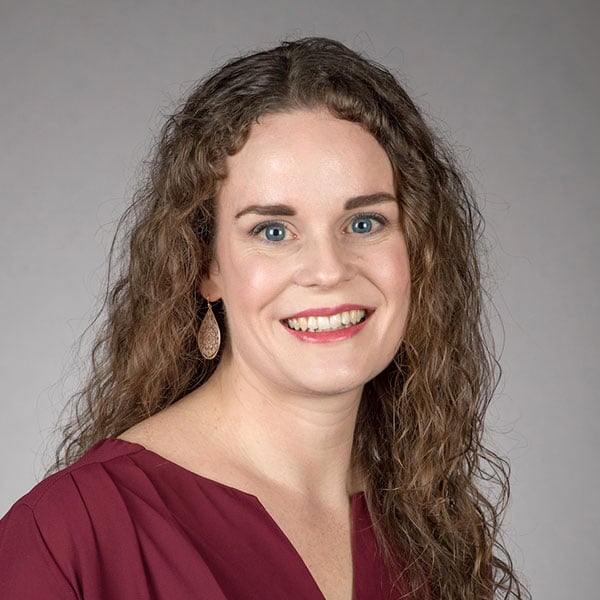Soon after the release of her latest album Inheritance, Catholic singer-songwriter Audrey Assad graciously provided the following interview describing her inspirations and her aspirations for this project and for her music in general. We are grateful to Audrey for sharing her thoughts with us as a complement to the review of her album featured here at Church Life.

CP: You’ve demonstrated an incredible depth and facility as a songwriter on your previous albums Death, Be Not Proud, O Happy Fault, Fortunate Fall, Heart, and The House You’re Building. Yet, with this latest album, your own songwriting takes a backseat, and you’ve offered listeners instead a collection consisting mostly of familiar hymns in original arrangements.
What is it about hymns in general and these hymns in particular that has not only drawn you to them but has also made you want to share them with your listeners?
AA: First of all, thank you so much for the kind words on my songwriting. I knew I was indeed shifting my focus a bit in doing a hymns project—I did so for several reasons. I grew up with these songs weaving themselves throughout my life and my community, so they are very precious to me—I was raised Protestant, but as a Catholic now I felt it would be a subtly ecumenical statement to do a project made of mostly Protestant hymns bookended with the (very Catholic) Ubi Caritas. Ecumenism is a deep passion of mine, so that was one reason for the project. Another is that I am, in addition to being a songwriter, a producer—I love to layer sounds and create depth sonically. Making a hymns record was a great way to make the album truly “all about the music”—for me, the challenge was taking pieces that exist already, with which people already have relationships, and presenting them with new spirit merely by creating tracks to highlight and display them and do them justice.
CP: This album has been your most successful release to date. Why do you think that is? What do you think it says about people’s needs and hungers that so many have responded to this album of ‘new old’ music, and what do you hope they take away from this album?
AA: I think part of why Inheritance debuted so successfully is that I have done a lot of work over the past few years, particularly since I left the record label system, to really draw my fans in and keep them close to the process of making the music. I’ve used Kickstarter, Pledgemusic, and social media to do this—and I think it is evident in the first week of the record that the fans really got behind the project (for which I am, of course, intensely grateful).
In addition, I think you are right that many are hungry for reverent, yet rich and interesting, devotional music. I tried to make an album of hymns that neither deified [nor] dishonored the songs—something truly musical and artful, but not disrespectful of the songs in structure or style. The fact that it is striking a chord with listeners is very encouraging to me.
CP: The music on this album is rooted in the hymn tradition, and yet it simultaneously expresses your own musical aesthetic. How did you approach creating the arrangements for these hymns—finding your own voice within this music that has been sung by countless voices for generations, without, as you’ve said elsewhere, “trampling them underfoot”? Were there any overarching musical principles that guided you in arranging these hymns?
AA: I tried (along with my co-producer, Dan James) to think in terms of depth, not bombast. We really tried to create dynamics with layers and strata of sounds, rather than loudness. We took what we like to call a cinematic approach—taking each hymn and creating a little score for it. We almost had little mood boards for each song—we asked ourselves “What does this one feel like? What colors does it evoke? What emotions?” For example, with How Can I Keep From Singing, which has a long history of being covered in folk style, we wanted to evoke the feeling of floating down a lazy river in the summer sun—complete ease. For others, like I Wonder As I Wander, we wanted to elicit the deep uncertainty that often underscores the Christian life, and call forth the feeling of bleak midwinter. So I suppose you could say our approach was to seek to create nuance and highlight the natural drama and dynamic range of the songs, while (hopefully) steering clear of melodrama or kitsch or just shoving the songs into thoroughly modern arrangements.
CP: Your original songs on this album and your previous releases draw from the scriptural, liturgical, spiritual, and even literary traditions of the Church. Why is it so important to you to draw from these wells in your songwriting, and how would you encourage others to begin discovering these rich sources for themselves?
AA: Well, in all seriousness, if I tried to write devotional/corporate songs without drawing from these wells I would have very little to say. I myself live with constant and unfettered Doubt (capital D because it is practically a character in my story) and so a large part of the reason I even write these songs to begin with is to preach the Gospel to myself. I try to think pastorally when writing songs for the Church, and a good way to do that (for me) has been to take heavy inspiration from the traditions you mentioned. I find other places to use music as pure catharsis (like my band, LEVV) — church music just isn’t the place for that.
CP: What inspires you most in creating original songs and/or original arrangements of familiar perennial favorites? Would you consider releasing another album of hymn tunes, and if so, what hymns would you want to include?
AA: I find literature/spiritual reading the most inspiring thing in terms of songwriting for the Church. Musically speaking I am beginning to see that I have a lot of influences coming from neoclassical and post-rock artists, like Olafur Arnalds and Agnes Obel and Hammock. If I did release another hymns record I’d want to put Let All Mortal Flesh Keep Silence on it—and Jesus, The Very Thought of Thee.
CP: Personally, I can only hope that this next collection of hymns won’t be long in coming.
![]()
To learn more about Audrey, her music, and her other forms of ministry, visit her website.



